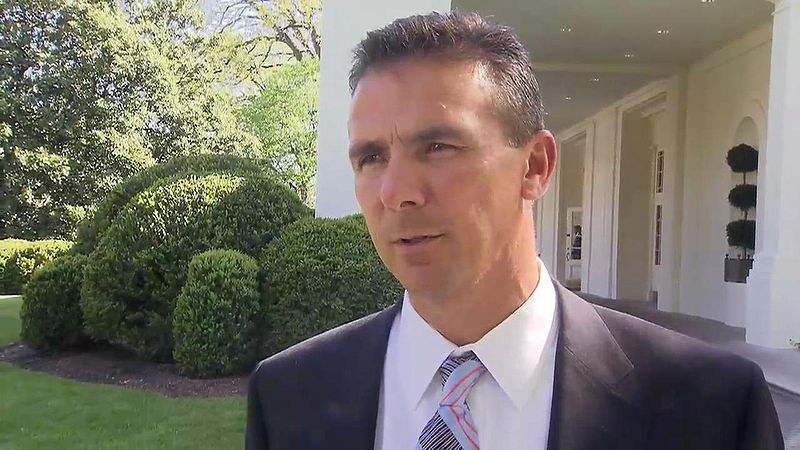Humor Is An Asset In Life. But Not In Media Interviews.
Many sports coaches hate it when their players “talk smack” about a team they’re about to play.
Those incendiary comments often serve as motivation for their opponents, who relish the chance to defeat the team that insulted them. Some opposing coaches even post the quote in the locker room to help rally their players.
So it caught my eye yesterday when one of my tweeps, @adam_myrick, tweeted this out:
The Associated Press story he links to is about Ohio State wide receiver Evan Spencer, who got into trouble with his coach this week for trash talking his opponents. As the AP reports:
“Coach Urban Meyer said Tuesday that Spencer wouldn’t speak with the media for ‘a long, long time’ after saying a day earlier that Ohio State would ‘wipe the field’ with Alabama and whoever is No. 2 in the Bowl Championship Series rankings.
‘I guess I’m a little biased, but I think we’d, uh, we’d wipe the field with both of them,’ Spencer said, chuckling.”
To the AP’s credit, they reported the full context of Spencer’s comments:
“It was a statement that Spencer…concluded with a laugh. It was clear he was half-joking. But sarcasm, humor and nuance seldom can be sensed between the lines of cold, hard print or on a monitor or screen.”
Many news organizations wouldn’t have done Spencer the favor of writing that he had been half-joking. They would have just included his comments verbatim without mentioning the humorous context in which he made them.
And that’s the problem with humor. Without the context, comments intended as humorous, silly, or ironic can be portrayed literally—and often are.
You might wonder whether you can afford to make more humorous comments during a live radio or television interview, since the audience will see your full exchange and be able to discern your meaning in its proper context. That’s safer, yes, but it’s still not entirely safe. That’s because your comments may later be transcribed by the wires, blogs, and newspapers—and the “proper” context may not be reflected in their stories about your interview.
With all of that, you may reasonably conclude that I’m advising you never to be humorous during a media interview. But that’s not quite it. It’s not that you can’t be humorous at all, but rather that your humor must reflect your actual, literal meaning.
If your humor, when transcribed, says exactly what you mean and can’t be interpreted in a harmful manner, you’re probably on safe ground.
Like our blog? Let’s connect! Like us on Facebook here and follow us on Twitter here.




